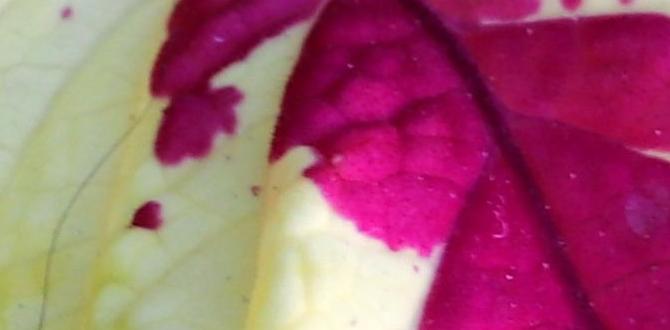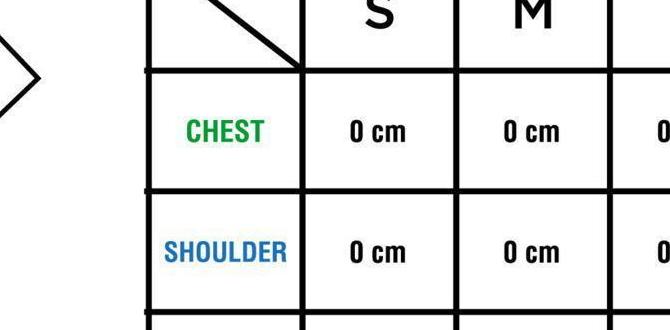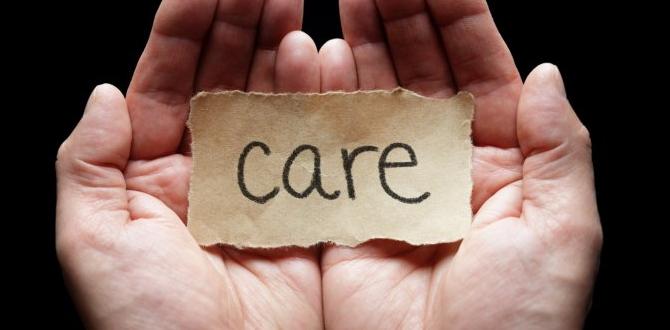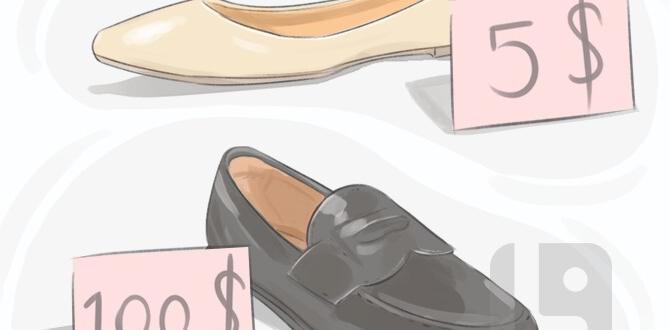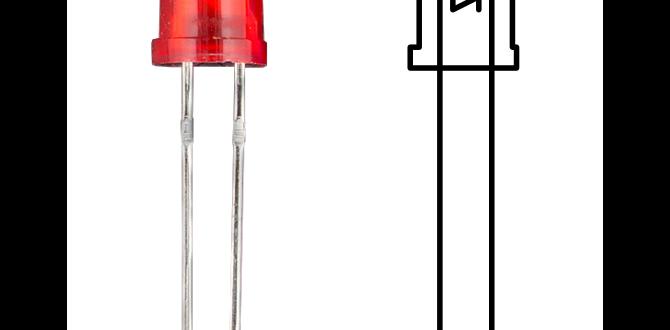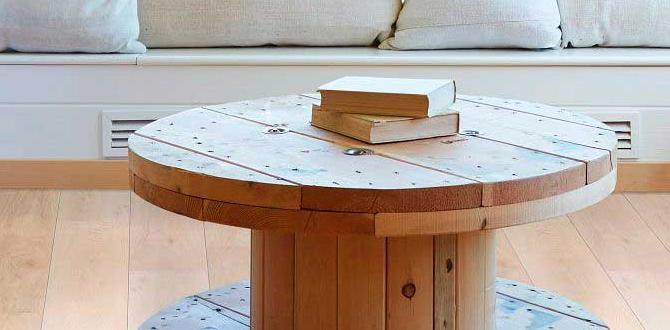Have you ever wondered how to make your garden look amazing? One simple trick is using black plastic for gardens. It might sound surprising, but this common material can change the way your plants grow.
Imagine walking through a garden filled with vibrant flowers and healthy vegetables. What if I told you that black plastic can help you achieve this look? It does more than just look good. It warms the soil and keeps pesky weeds at bay.
Many gardeners have discovered the power of black plastic. With just a sheet or two, you can create a thriving garden space. People often use it to protect their plants during chilly nights, too. Isn’t it fascinating how such a simple item can make gardening easier and more fun? Let’s explore the many benefits of using black plastic for your garden.
Black Plastic For Gardens: Benefits, Uses, And Tips

Black Plastic for Gardens
Black plastic can be a gardener’s best friend. It helps control weeds by blocking sunlight. Did you know it also warms the soil? This is great for early planting! Using black plastic can save water, too, as it reduces evaporation. Imagine having a garden full of healthy plants and fewer weeds. Plus, it’s easy to use. Just lay it down, cut holes for your plants, and watch them thrive. Isn’t that simple?Benefits of Black Plastic in Gardening
Conserves soil moisture and reduces evaporation. Suppresses weed growth effectively.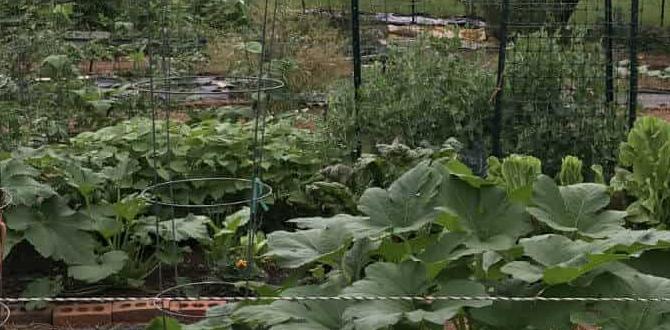
Using black plastic in your garden is like having a superhero on your team! It helps your plants by conserving soil moisture, which means less watering for you. You can say goodbye to constant evaporation. Also, it acts like a blanket that effectively suppresses weeds. Fewer weeds mean more room for your plants to grow. And let’s be honest; nobody wants to battle pesky weeds all day!
| Benefit | Description |
|---|---|
| Soil Moisture | Reduces evaporation and keeps soil damp. |
| Weed Control | Stops weeds from getting sunlight and growing. |
Types of Black Plastic Available for Gardens
Different thickness levels and their applications. Biodegradable options vs. traditional plastic.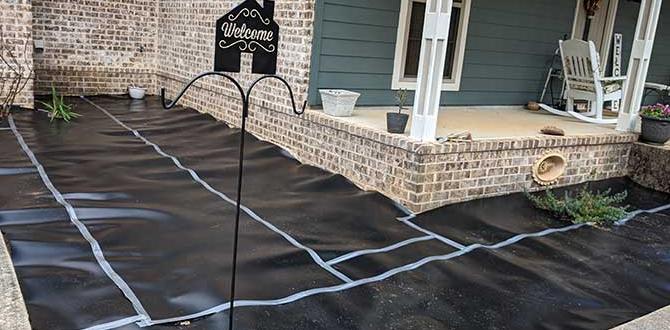
In the world of gardening, black plastic comes in various thicknesses, each fit for different tasks. The thinner sheets work best for quick fixes, like weed control, while thicker ones tackle tougher jobs, like retaining warmth in the soil. Plus, there are biodegradable options that break down over time—goodbye to pesky plastic waste! Traditional plastic is strong and lasts longer, making it a go-to for many gardeners. So, choose wisely; your plants will thank you!
| Type | Thickness | Application |
|---|---|---|
| Thin Plastic | 1-2 mil | Weed control |
| Medium Plastic | 3-4 mil | Seedling protection |
| Thick Plastic | 5-6 mil+ | Soil warmth retention |
| Biodegradable Plastic | Variable | Eco-friendly options |
How to Properly Install Black Plastic in Your Garden
Preparing the garden bed for optimal results. Techniques for securing plastic to prevent wind damage.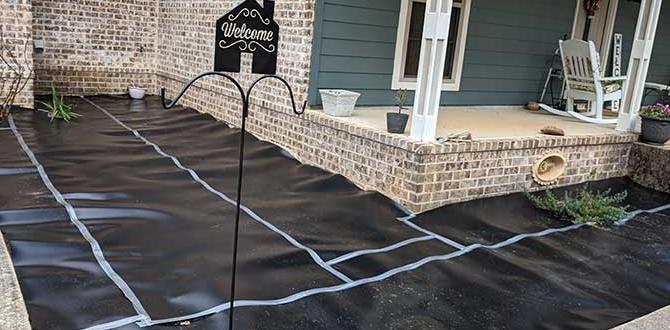
Start by cleaning your garden bed. Remove weeds and rocks, creating a smooth surface. Then, lay down the black plastic. This helps keep weeds away and warms the soil. To secure it, use stones or staples at the edges. This stops the wind from blowing it away. Water the soil after laying the plastic. This keeps the garden healthy.
How do I secure black plastic in my garden?
Use the following methods to keep the plastic in place:
- **Use landscape staples.** These hold the plastic firmly in the soil.
- **Add stones along the edges.** They act like weights and prevent movement.
- **Cover with mulch.** This also helps with moisture and prevents weeds.
Uses of Black Plastic Beyond Weed Control
Soil warming benefits in early planting seasons. Pathway creation and maintenance in garden designs.Black plastic isn’t just for keeping weeds at bay; it has a few secret superpowers too! First up, it warms the soil. This is great for early planting. Plants love a cozy start, and black plastic can help them wake up faster in spring.
Next, it’s perfect for creating and maintaining pathways in your garden. Just lay it down, and voilà—no muddy shoes! Looking stylish while gardening has never been easier. Plus, it helps keep your flowers shining without the pesky garden mud.
| Use | Benefit |
|---|---|
| Soil Warming | Speeds up plant growth and early sprouting |
| Pathway Creation | Keeps paths clear and clean for garden strolls |
So, don’t toss that black plastic aside! It’s a total game-changer.
Maintenance and Removal of Black Plastic
Best practices for maintaining black plastic over time. Safe removal techniques to protect soil health.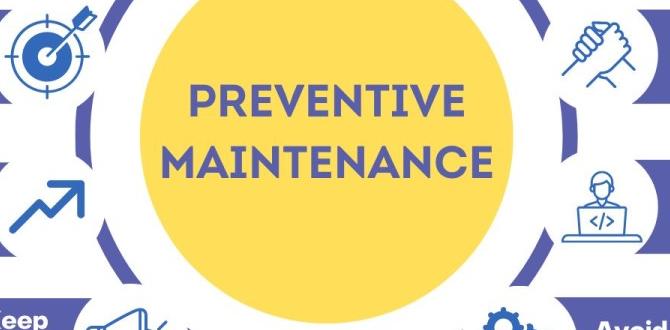
To keep black plastic in good shape, regularly check for damage. Make sure it’s flat and not covered by weeds. This helps plants grow better. When it’s time to remove it, do it carefully. Pull it up slowly to avoid hurting the soil.
- Don’t leave pieces of plastic behind. This can harm your soil.
- Consider putting the plastic in a recycling bin, if possible.
Taking care of black plastic helps gardens thrive. Remember, a healthy garden starts with good practices!
How should I safely remove black plastic from my garden?
To safely remove black plastic, lift it gently and avoid tearing it. This prevents small pieces from getting stuck in the soil.
Environmental Considerations and Alternatives to Traditional Black Plastic
Impact of plastic waste on gardens and ecosystems. Exploring ecofriendly mulch and cover crop options.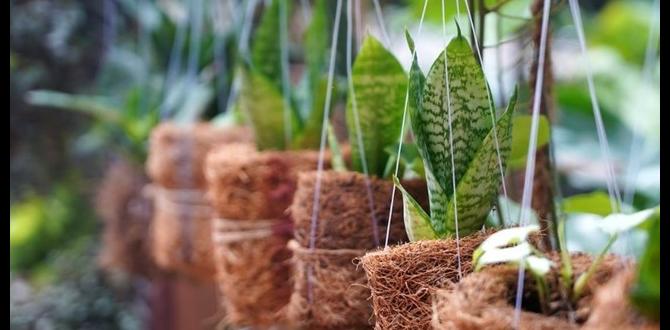
Plastic waste is a big bummer for gardens and nature. It can choke plants and mess up soil life. Luckily, there are fun and eco-friendly alternatives! Using natural mulch keeps the garden cozy and smothered without any plastic drama. You can also plant cover crops that boost soil health and keep weeds at bay. Don’t worry, Earth won’t give you a guilt trip for using these smart options!
| Alternative Method | Benefits |
|---|---|
| Natural Mulch | Fights weeds, retains moisture, enriches soil. |
| Cover Crops | Protects soil, improves nutrients, prevents erosion. |
Conclusion
In summary, black plastic is great for gardens. It helps keep weeds down and holds moisture. Using it can make your plants healthier and your garden easier to manage. If you’re ready to try black plastic, research how to use it best for your plants. Happy gardening! Let’s make our gardens thrive together!FAQs
Sure! Here Are Five Related Questions On The Topic Of Black Plastic For Gardens:Black plastic can help your garden by blocking weeds and keeping the soil warm. You can use it as a cover to keep plants healthy. It also helps keep moisture in the ground. Just make sure to remove it later so it doesn’t hurt the soil. Remember, it’s good for your plants but use it wisely!
Sure! Please provide the question you want me to answer.
What Are The Benefits Of Using Black Plastic As A Weed Barrier In Garden Beds?Using black plastic as a weed barrier helps keep your garden clean. It stops weeds from growing and taking nutrients. When we cover the ground, the sun can still warm the soil. This helps our plants grow better. Plus, it keeps moisture in, so we don’t have to water as much!
How Does Black Plastic Affect Soil Temperature And Moisture Retention In Gardens?Black plastic can help your garden in two big ways. First, it warms up the soil because it absorbs heat from the sun. Warmer soil helps plants grow better and faster. Second, black plastic keeps moisture in the soil, so your plants don’t dry out as quickly. This means you have to water them less often!
What Are The Environmental Implications Of Using Black Plastic In Gardening Practices?Using black plastic in gardening can hurt the environment. When we throw it away, it might not break down for a very long time. This means it can pollute our soil and water. Also, black plastic can get hot, which may harm worms and bugs that help plants grow. Instead, we can use natural materials that are better for our planet.
Can Black Plastic Be Reused Or Recycled After Its Initial Use In The Garden, And If So, How?Yes, black plastic can be reused or recycled after using it in the garden. You can clean it and use it again for planting or covering soil. If you want to recycle it, check if your recycling center accepts black plastic. Always ask your grown-ups to help with recycling it properly. This way, we can help the Earth together!
What Are Some Alternatives To Black Plastic For Garden Applications, And How Do They Compare In Effectiveness?You can use cardboard, newspaper, or biodegradable mulch instead of black plastic in your garden. Cardboard and newspaper break down over time, helping the soil. They block weeds just like black plastic does. Biodegradable mulch also keeps the soil moist and adds nutrients. These options are good for the environment and can be just as effective!

